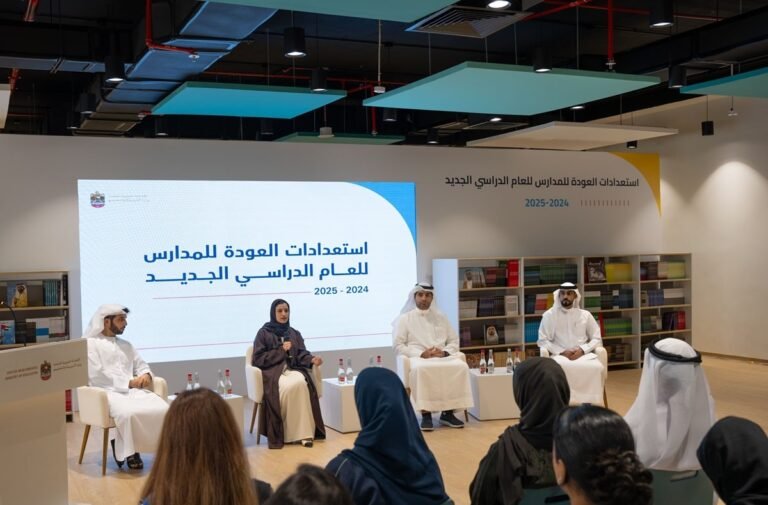The UAE Ministry of Education (MoE) has unveiled a comprehensive strategy for the 2024-2025 academic year, aiming to further advance the nation’s educational landscape. The Ministry of Education has confirmed that public schools across the UAE are ready to welcome students back on Monday, August 26, 2024. Ministry teams have worked tirelessly to ensure a smooth and seamless start to the new school year.
Sarah Al Amiri, Minister of Education, emphasized that she initiated proactive planning even before the conclusion of the previous academic year. These meticulously crafted plans, developed in collaboration with various entities, aim to enhance the overall school environment, improve infrastructure, upskill educators, and optimize support services.
Among the key announcements were significant updates to student assessment policies across all educational levels. Rooted in evidence-based practices, these revisions aim to elevate the quality of education in line with the UAE leadership’s vision. The new assessment structure will include revised weightings for the academic terms and adjustments to the percentages for formative and central assessments.
Specifically, for students in Cycles 2 and 3, the evaluation will now be distributed as follows:
- 35% for the first term, which is the longest academic term
- 30% for the second term
- 35% for the third term
Al Amiri stated, “We adjusted the weightings according to the number of school days and expected outcomes for each term, ensuring a more balanced and indicative evaluation process for students in the UAE.” She also noted that they have modified the formative assessment percentage for Cycles 2 and 3 to 40%, with the central assessment now accounting for 60%.
The updates reflect an understanding that continuous assessment throughout the year is critical for measuring students’ academic progress and skill development, rather than relying solely on end-of-term exams. A notable change replaces the central exam in the second term for Cycle 2 students with a project-based assessment focused on practical skill application, aiming to deepen students’ learning experiences.
In addition to these policy updates, the Ministry has launched the national back-to-school campaign, titled “From Student to Leader,” which seeks to engage the entire community in supporting students and nurturing future leaders. This campaign emphasizes four main pillars: the educational system, teachers, parents, and students.
Mohammed Al Qasim, Under-Secretary of MoE, highlighted the establishment of a special committee in January to oversee preparations for the new academic year. “A dedicated team of engineers and specialists supervised school maintenance operations to ensure the highest standards of readiness, thus providing a safe and healthy environment for students and educators,” he explained. The ministry has successfully completed maintenance on 311 schools, including building upgrades and infrastructure enhancements.
Additionally, 25 schools have been opened, comprising 12 new institutions and 13 schools that have reopened following extensive maintenance.
The MoE has also ensured that students have access to the necessary learning materials, with the printing of approximately 10 million textbooks and the conversion of 3,706,000 books into digital formats.
To further support students’ daily commute, the Ministry, in collaboration with service providers, has conducted thorough maintenance on over 5,000 school buses and optimized transportation routes for a smoother journey.
The MoE has also placed a strong emphasis on student wellbeing, launching the largest field survey in the educational sector to date. This survey aims to develop a strategic framework for enhancing student wellbeing, complemented by a robust lineup of curricular and extracurricular programs designed to boost cognitive, cultural, and social skills.
Following the success of the Freejna School project, the MoE plans to expand the initiative to include additional schools, with new agreements in place to introduce more sports, scientific, and cultural activities.


